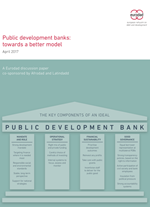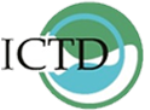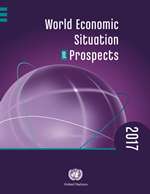Social Watch News
Published on Thu, 2017-04-27 10:37
The 2017 meeting of the UN Commission on the Status of Women agreed on the need for “progressive tax systems, improved tax policy, more efficient tax collection and increased priority on gender equality and the empowerment of women in official development assistance”. This call for an independent global tax body in connection with women, along with the call on Member States to strengthen government oversight of PPPs is significant. Does it perhaps signal a new willingness of CSW to take on constraints to women’s rights and empowerment beyond the national level?
|
|
Published on Fri, 2017-04-21 00:00
|
Published on Wed, 2017-04-19 18:16
All major presidential candidates promise in their platforms to increase the French development cooperation contribution to 0.7 per cent of GDP and yet "I bet you a bottle of champagne that whoever gets elected, when we gather again five years from now that promise will not have been met".
Jean-Michel Severino, the author of the bet, was speaking on behalf of Emmanuel Macron in a public debate about French international relations and development cooperation among representatives from the five leading presidential candidates, a contest so close that four of them are deemed likely to pass to the second and final round next May.
|
Published on Wed, 2017-04-19 17:58
Eurodad published a new report on public development banks, entitled "Public development banks: towards a better model".
The report draws on a wide range of existing research and finds there are four main roles that public development banks (PDBs) can play to improve the impact of the financial sector on development.
Public development banks (PDBs) are enjoying a resurgence. The global financial and economic crisis has stimulated new interest in PDBs, particularly given the important role they play in providing counter-cyclical financing when private capital is in short supply. In recent years, several countries have established new national and multilateral PDBs, and at the global level they have been recognised for the role they play in the United Nations Financing for Development process.
|
Published on Wed, 2017-04-19 13:57
Last week the UN Committee of Experts on International Tax (UNTC) met at the United Nations HQ in New York, a few metres from the Security Council meetings on Syria, followed by a special session on tax of the Economic and Social Council (ECOSOC). The undercurrent of the detailed technical discussions during the week has been a crisis of global tax governance. While, for example, the grand-sounding Addis Tax Initiative included a commitment to double the aid for tax issues to developing countries, very little has come to the UNTC.
|
Published on Wed, 2017-04-19 13:48
ICAE announces the ICAE Virtual seminar 2017 - on the topic of “The new Skills Agenda for Europe” The seminar is free of charge, open to anyone and will start on May 2nd.
The webinar will take place next May 2nd at 14:00 (Brussels Time) in English language.
|
Published on Wed, 2017-04-19 12:49
More than eight years after the global financial crisis exploded in late 2008, economic growth remains generally tepid, while ostensible recovery measures appear to have exacerbated income and other inequalities.
Yet, despite the G-20 group of the world's largest economies raising the level, frequency and profile of its meetings, effective multilateral cooperation and coordination remains a distant dream.
|
|
Published on Fri, 2017-04-14 00:00
|
Published on Thu, 2017-04-13 18:44
The Sustainable Development Goals embody the world’s greatest aspirations for human health, education, equality, the economy, and the environment. Their realization relies on investment and cooperation among all stakeholders, including civil society, citizens, and the private sector. Yet at their core, the SDGs are a commitment by governments to strive to meet these critical objectives by 2030.
|
Published on Mon, 2017-04-10 17:17
Nearly 7,000 civil society organizations and trade unions have signed a letter to their respective heads of state and government calling for redoubling efforts to implement a Financial Transaction Tax (FTT), also known as the 'Robin Hood tax'. The petition was submitted on the occasion of the European summit held in Rome to commemorate the 60th anniversary of the Treaty of Rome.
CSOs point out that such a tax on financial transactions would entail a minimum income of € 20 billion a year, and that revenue should be used to meet social needs such as financing global public goods such as health, education and the fight against poverty and climate change. In addition, this measure would restore the stability of markets, the prevention of future crises such as the one that shook Europe and the world in 2007-2008.
|
SUSCRIBE TO OUR NEWSLETTER
Submit

|










